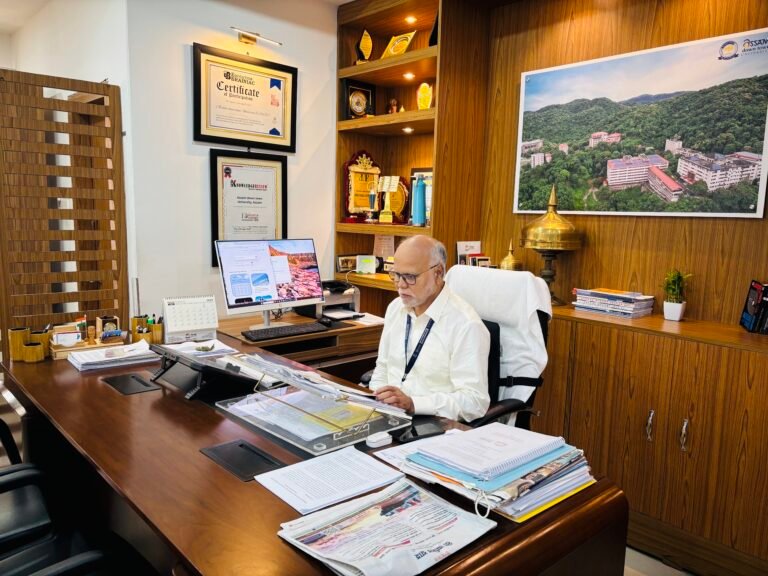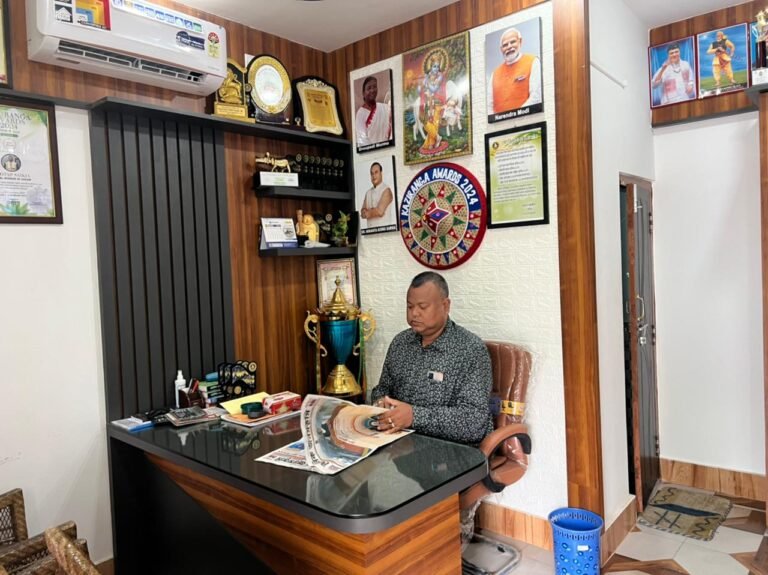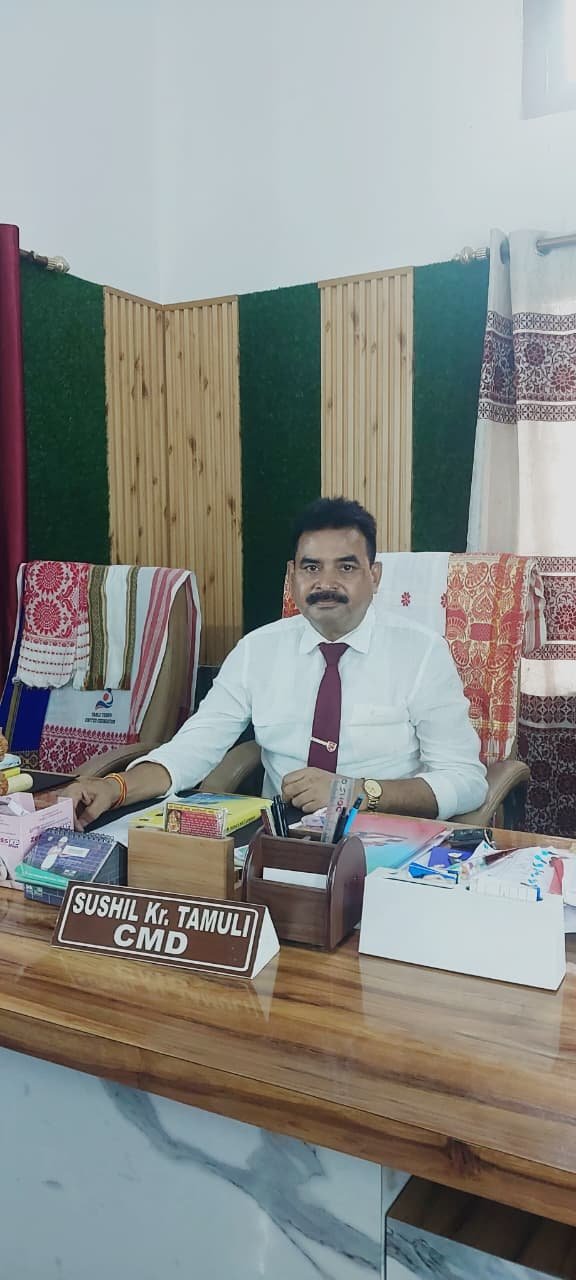Bridging Northeast India with Southeast Asia: Royal Global University’s Vision for the Future
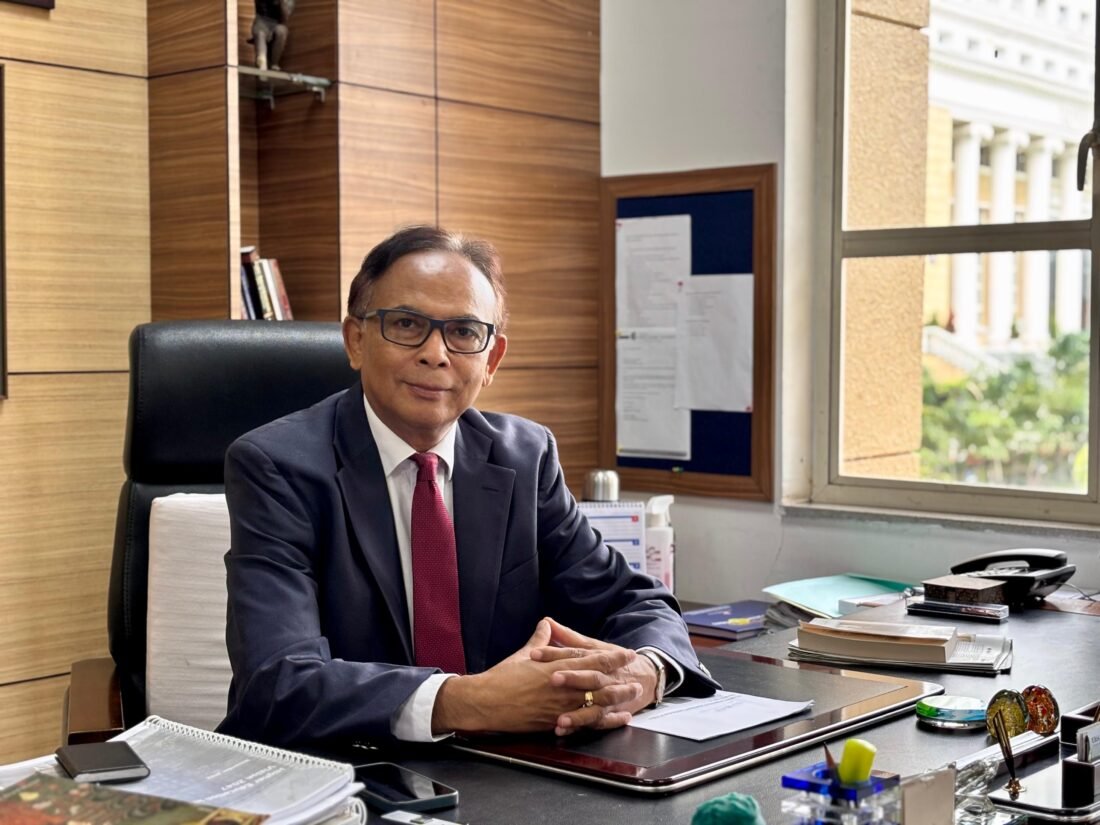
With a distinguished academic background that includes a PhD in Molecular Biology from Imperial College of Science, Technology and Medicine, University of London, Dr. Alak K. Buragohain brings decades of experience in both teaching and academic administration. A former Vice Chancellor at Dibrugarh University, a respected voice in higher education policy, he now serves as the Vice Chancellor of Assam Royal Global University, one of the fastest-growing private universities in Northeast India.
In this exclusive interview with EduNe Bureau, Dr. Buragohain shares his vision for transforming Royal Global University into a regional hub of international learning, fostering entrepreneurship and innovation, and nurturing future-ready students. He also opens up about the unique challenges faced by students from the Northeast and the critical role of storytelling in shaping confidence and aspirations.
- What is your vision for Royal Global University over the next five years, especially in the context of Northeast India?
My vision is to position Assam Royal Global University as a leading institution not just within the Northeast, but one that extends its reach to Southeast Asian countries. While we may not compete with globally ranked universities like the University of Singapore or Nanyang Technological University, our aim is different—we want to serve the educational aspirations of neighbouring nations like Myanmar, Vietnam and Laos, etc. We already have students from these countries, and our students are participating in exchange programs in Malaysia and Thailand. We want to build on that momentum.
Our goal is to become a university where students, faculty, and researchers from the Southeast Asian region feel at home—an international campus grounded in regional values. This vision aligns with the Government of India’s Act East Policy, which seeks to strengthen people-to-people connections. We aim to foster this through education, shared traditional knowledge, and collaborative work in fields like climate change and natural resource management.
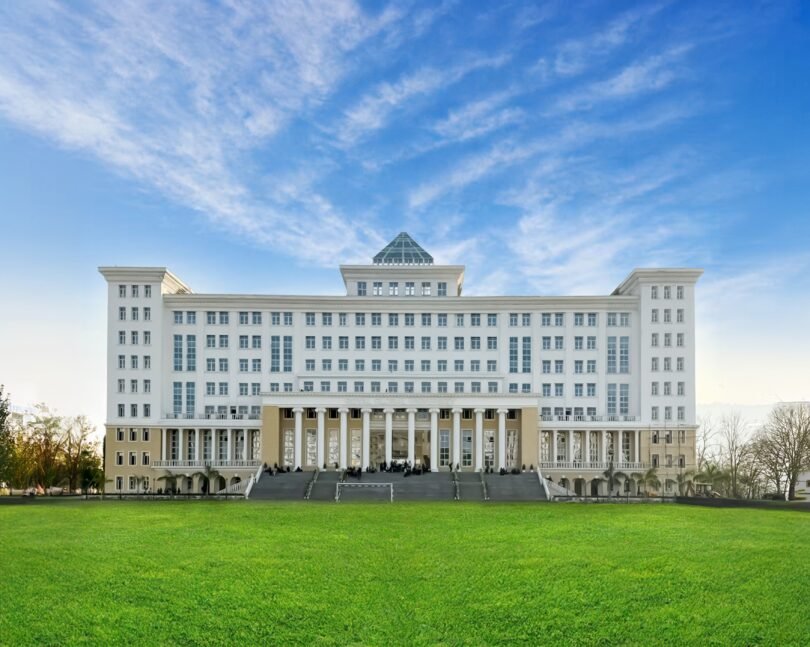
- How do you view the role of private universities in transforming higher education in the region?
The idea behind founding this university stemmed from a simple observation: a large number of students from the Northeast go outside the region for higher education. This is not just brain drain—it’s also revenue drain. Royal Global University was established to address this dual outflow. Providing high-quality education locally not only retains talent but also makes education more affordable for many families.
To truly make a difference, we must offer better infrastructure, research opportunities, and academic excellence—competitive with what’s available elsewhere. That’s how private universities can transform higher education in the Northeast.
- As an academic leader, what values do you consider essential for nurturing future-ready students?
Traditionally, higher education focused heavily on imparting subject knowledge and evaluating students based on their retention of that knowledge. Over time, we shifted to skill-based education. But even that wasn’t enough. The missing link was attitude.
That’s why I’ve adopted what I call the “ASK” model: Attitude, Skill, Knowledge—in that order. Earlier, we looked at it in reverse: knowledge first, skills next, and attitude last. But now we understand that without the right attitude—emotional intelligence, respect for others, and an understanding of the professional world—both knowledge and skills can fall short.
At Royal Global, we work to cultivate these qualities through orientation programs, peer learning, and robust scholarships for students from economically weaker sections. Our campus is a confluence of students from diverse socio-cultural and economic backgrounds. Learning mutual respect is as important as academic achievement.
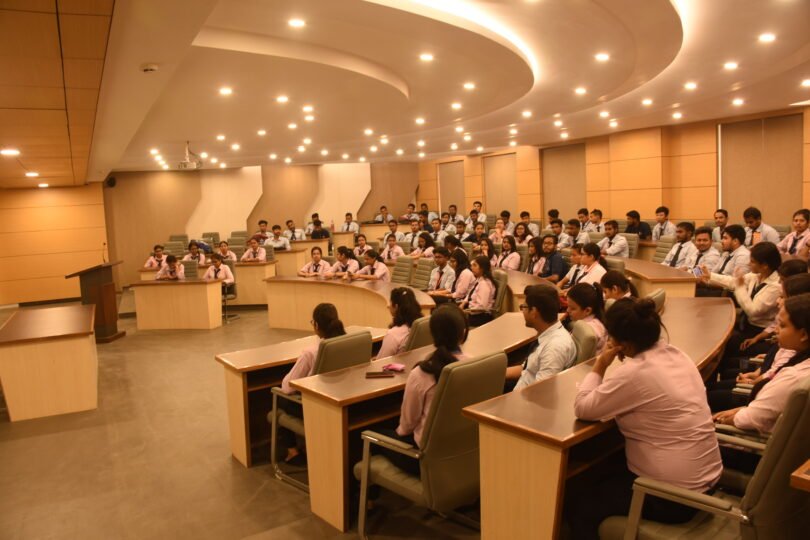
- What unique strengths and challenges have you observed in students from the Northeast?
Students carry their society’s aspirations with them. In many cases here, aspirations are either limited or disproportionate to one’s capacity. That mismatch is a major challenge.
I remember a brilliant student from Arunachal Pradesh when I was teaching at Tezpur University. He secured a fellowship at the Indian Institute of Science, Bangalore. But he told me his family and villagers didn’t want him to go—they wanted him to stay and work in the village as a Block Development Officer. They had invested in his education with the hope that he would serve the community locally.
This is a recurring dilemma: students torn between personal academic potential and community expectations and aspirations. Add to that is a crisis of confidence. With so many career pathways and so much information available, students often don’t know which way to go. Our responsibility goes beyond just education—it’s to guide them to discover their true potential and show them the path appropriate for their career progression.
- Are there specific initiatives at RGU to foster entrepreneurship and innovation among students?
Yes, we have established an Institution Innovation Council (IIC) under the Government of India’s initiative. We’ve received high ratings—three stars—and already have four startups doing well under our ecosystem.
Our focus is to shape students into entrepreneurs. From the first semester itself, we work on building the right mindset. By the time they reach their final year, our aim is that they are ready to launch their own ventures.
- Could you share some examples of meaningful collaborations RGU has undertaken recently?
We have signed significant MoUs with institutions like IIT Guwahati and the North East Institute of Science and Technology (NEIST) to promote research. In the humanities, we’ve partnered with the Indira Gandhi Centre for the Arts to promote arts and social science education.
We also have collaborations with several international universities for student exchange programs. These collaborations help us widen our academic and cultural horizons.
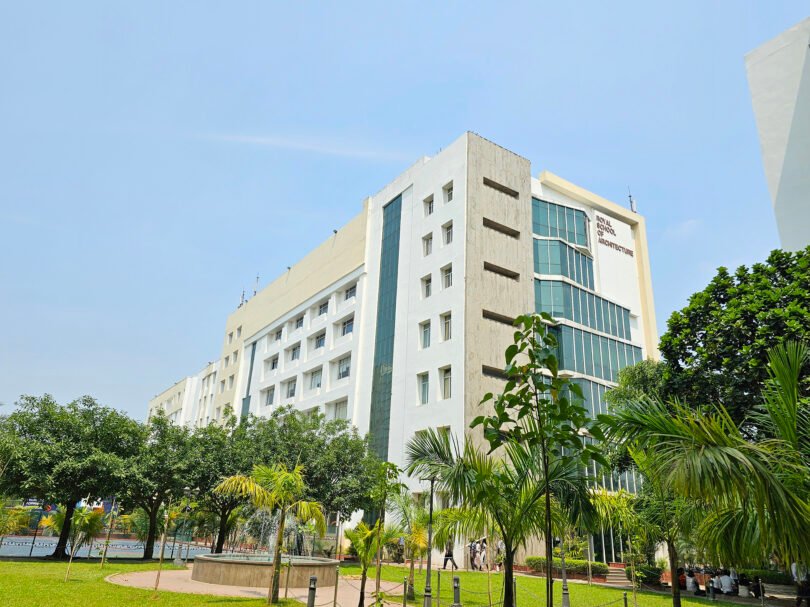
- What continues to fuel your passion for education after all these years?
I’ve always had a strong urge to learn. Teaching felt like a natural calling—I’ve always believed I was born to be a teacher. I also read widely across disciplines, which has helped me not only in my academics but also in academic governance and policy-making.
What motivates me the most is seeing students grow—both intellectually and personally. It’s incredibly fulfilling to be part of that journey.
- Finally, what role does storytelling and documentation play in building a robust educational narrative for Northeast India?
It’s absolutely vital. Stories inspire—whether they’re imagined or drawn from real-life role models. They offer moral direction and instil confidence, especially when students confront confusing situations in their lives.
For example, many Assamese students hesitate to appear for civil services, thinking it’s too tough. But they should know about Anandaram Barua from North Guwahati—he was not only the first from Assam to crack the Indian Civil Services but also the youngest district magistrate appointed in the country by the British. These stories need to be told and retold—they’re part of our collective pride and should be integrated into our education system.

